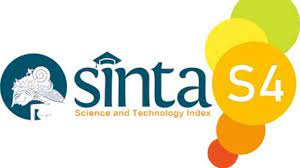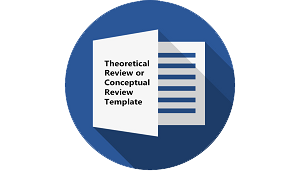My Liberating Approach to Teaching and the Howabouts of Its Transforming Power
DOI:
https://doi.org/10.30957/ijoltl.v5i3.634Keywords:
Cognitive Socio-Political Language Learning Theory; Method engineering; Competitive Team-Based Learning; Catalyst for transformation and change; Civilised societies and World peaceAbstract
This paper attempts to throw into sharp relief my liberal instructional approach, Competitive Team-Based Learning, and shed light on its design, objective, syllabus, materials, and tasks. It also gives a glimpse of the significance of my pedagogical approach for today's world context of globalization, which is characterized by despotism, capitalism, and imperialism. Most importantly, the paper explicates the howabouts of my liberating approach transforming power and highlights its distinguishing features and characteristics with reference to the present methods and approaches like CLT and particularly CL methods.
Downloads
References
Barlas, A. (2019). Democracy, nationalism, and communalism: The colonial legacy in South Asia. Routledge.
Derafsh-kaviyan, P. (2017). The Impact Competitive Team-based Learning vs. Cooperative Group-Based Learning on EFL Learners’ Mastery of Structure. Unpublished MA Thesis, Islamic Azad University of Roudehen, Iran. Hamidreza Fatemipour.
Fekri, N. (2016). Investigating the Effect of Cooperative Learning and Competitive Learning Strategies on the English Vocabulary Development of Iranian Intermediate EFL Learners. English Language Teaching, 9(11), 6–12.
Hirvela, A., Hyland, K., & Manchón, R. M. (2016). Dimensions in L2 writing theory and research: Learning to write and writing to learn. Handbook of Second and Foreign Language Writing, 11, 45–64.
Hosseini, S. M. B. (2007). Language proficiency and collocational competence. Journal of Asia TEFL, 4(4).
Hosseini, S. M. H. (2010). Theoretical Foundations of “Competitive Team-Based Learning.†English Language Teaching, 3. https://doi.org/10.5539/elt.v3n3p229
Hosseini, S. M. H. (2012). A Study of the Effects of Competitive Team-Based Learning and Structured Academic Controversy on the Language Proficiency of Iranian EFL College Seniors. International Journal of Adult Vocational Education and Technology, 3, 54–69. https://doi.org/10.4018/javet.2012100105
Hosseini, S. M. H. (2014). Competitive Team-Based Learning versus Group Investigation with Reference to the Language Proficiency of Iranian EFL Intermediate Students. International Journal of Instruction, 7(1), 177–188.
Hosseini, S. M. H. (2019). Cognitive Socio-political Language Learning Theory, Multiple Input-output Hypothesis and Competitive Team-based Learning. Theory and Practice in Language Studies, 9(4), 411–423.
Jiang, Y. (2010). A feasibility study of applying “double-output hypothesis†into task-based teaching approach in second language acquisition. Language Teaching and Research, 1 (4): 397-400.
Lan, Y. (2020). Non-word (buyan) and non-self (wuji): Resistance to duality, standardisation and comparison in regime of school accountability. Educational Philosophy and Theory. Retrieved from https://www.scopus.com/inward/record.uri?eid=2-s2.0-85078635058&doi=10.1080%2F00131857.2019.1707660&partnerID=40&md5=a5998d8db845654f70a90a80b6f77799
Lowe, K., & Yunkaporta, T. (2013). The inclusion of Aboriginal and Torres Strait Islander content in the Australian National Curriculum: A cultural, cognitive and socio-political evaluation. Curriculum Perspectives, 33(1), 1–14.
Macer, M., & Chadderton, C. (2020). The reproduction of the gender regime: the military and education as state apparatuses constraining the military wife student. Gender and Education. Retrieved from https://www.scopus.com/inward/record.uri?eid=2-s2.0-85085517037&doi=10.1080%2F09540253.2020.1765994&partnerID=40&md5=8c7b48c8663fdaf653bc8af12e66627b
Mirhosseini, S.-A., & Kianfar, R. (2019). Writing the World in a Foreign Language. Changing English: Studies in Culture and Education. Retrieved from https://www.scopus.com/inward/record.uri?eid=2-s2.0-85054496151&doi=10.1080%2F1358684X.2018.1520076&partnerID=40&md5=746ea56d6c3bc4c0aa3698473a3d497c
Mirshak, N. (2020). Authoritarianism, education and the limits of political socialisation in Egypt. Power and Education. Retrieved from https://www.scopus.com/inward/record.uri?eid=2-s2.0-85071479605&doi=10.1177%2F1757743819869028&partnerID=40&md5=4597fac0a7e9ce0d140edfaf6d1f5ce6
Plamondon, K. M., Caxaj, C. S., Graham, I. D., & Bottorff, J. L. (2019). Connecting knowledge with action for health equity: a critical interpretive synthesis of promising practices. International Journal for Equity in Health, 18(1), 202.
Purkarthofer, J., & De Korne, H. (2020). Learning language regimes: Children’s representations of minority language education. Journal of Sociolinguistics. Retrieved from https://www.scopus.com/inward/record.uri?eid=2-s2.0-85067358161&doi=10.1111%2Fjosl.12346&partnerID=40&md5=cb4390f6684a54a460da19e93bf78196
Salari, F., & Hosseini, S. M. H. (2019). Competitive Team-Based Learning vs. Reciprocal Teaching of Reading: A Study in Reading Classes. Journal of Language Teaching and Research, 10(3), 489–500.
Shams, A. (2016). Revolutionary religiosity and women’s access to higher education in the Islamic Republic of Iran. Journal of Middle East Women’s Studies, 12(1), 126–138.
Vaismoradi, M., Bondas, T., Jasper, M., & Turunen, H. (2014). Nursing students’ perspectives and suggestions on patient safety—Implications for developing the nursing education curriculum in Iran. Nurse Education Today, 34(2), 265–270.
Downloads
Published
How to Cite
Issue
Section
License
Authors who publish with this journal agree to the following terms:
- Authors retain copyright and grant the journal right of first publication with the work simultaneously licensed under a Creative Commons Attribution-ShareAlike 4.0 International License that allows others to share the work with an acknowledgement of the work's authorship and initial publication in this journal.
- Authors are able to enter into separate, additional contractual arrangements for the non-exclusive distribution of the journal's published version of the work (e.g., post it to an institutional repository or publish it in a book), with an acknowledgement of its initial publication in this journal.
- Authors are permitted and encouraged to post their work online (e.g., in institutional repositories or on their website) prior to and during the submission process, as it can lead to productive exchanges, as well as earlier and greater citation of published work (See The Effect of Open Access).












